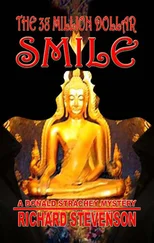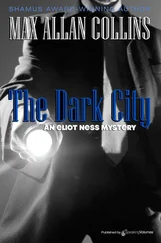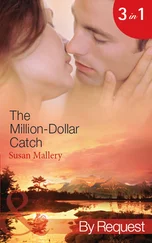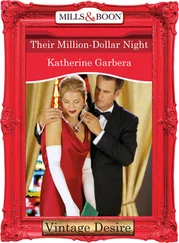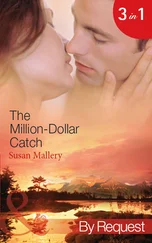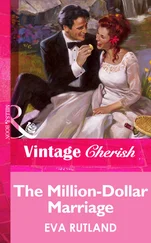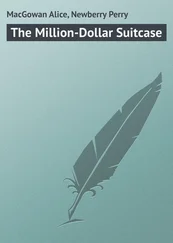Max Collins - The Million-Dollar Wound
Здесь есть возможность читать онлайн «Max Collins - The Million-Dollar Wound» весь текст электронной книги совершенно бесплатно (целиком полную версию без сокращений). В некоторых случаях можно слушать аудио, скачать через торрент в формате fb2 и присутствует краткое содержание. Жанр: Криминальный детектив, на английском языке. Описание произведения, (предисловие) а так же отзывы посетителей доступны на портале библиотеки ЛибКат.
- Название:The Million-Dollar Wound
- Автор:
- Жанр:
- Год:неизвестен
- ISBN:нет данных
- Рейтинг книги:3 / 5. Голосов: 1
-
Избранное:Добавить в избранное
- Отзывы:
-
Ваша оценка:
- 60
- 1
- 2
- 3
- 4
- 5
The Million-Dollar Wound: краткое содержание, описание и аннотация
Предлагаем к чтению аннотацию, описание, краткое содержание или предисловие (зависит от того, что написал сам автор книги «The Million-Dollar Wound»). Если вы не нашли необходимую информацию о книге — напишите в комментариях, мы постараемся отыскать её.
The Million-Dollar Wound — читать онлайн бесплатно полную книгу (весь текст) целиком
Ниже представлен текст книги, разбитый по страницам. Система сохранения места последней прочитанной страницы, позволяет с удобством читать онлайн бесплатно книгу «The Million-Dollar Wound», без необходимости каждый раз заново искать на чём Вы остановились. Поставьте закладку, и сможете в любой момент перейти на страницу, на которой закончили чтение.
Интервал:
Закладка:

Max Allan Collins
The Million-Dollar Wound
Although the historical events in this novel are portrayed more or less accurately (as much as the passage of time, and contradictory source material, will allow), fact, speculation, and fiction are freely mixed here; historical passages exist side by side with composite characters and wholly fictional ones-all of whom act and speak at the author’s whim.

What immediately comes to mind, with this-the final book of the Frank Nitti Trilogy-is the battle over the title I had with editor Tom Dunne of St. Martin’s Press.
My title was The Hollywood Wound. This was a World War II phrase among combat soldiers, meaning a wound bad enough to get you sent home, but not so bad you wouldn’t recover to a normal life. I felt it also had a secondary resonance, which is the Hollywood aspect of the story-the move by Nitti and the Chicago Outfit to take over the motion picture unions.
Well, Dunne just hated the title (loved the novel, though). Word came back to me from several other writers that Dunne had said to them, “Your friend Collins writes great books, but he comes up with terrible titles,” which I thought then was fairly ungracious and still do. But he was the boss, and I did my best to come up with alternates. The only one I remember (of a long undistinguished list) is True War, which would have been a natural follow-up to the prior books (True Detective and True Crime), but seemed both too easy and…wrong.
I had also considered The Million-Dollar Wound as a title, because that, too, was a combat phrase with the same meaning as “Hollywood wound.” “Million-dollar wound” did come into use during World War II, but not with the prominence of the “Hollywood” term; and “million-dollar” was more commonly (if inaccurately) thought of as strictly a Vietnam-era term (and admittedly that’s where “million-dollar wound” really became common G.I. vernacular). In addition, there’s a “million-dollar” resonance in the story that I won’t spoil here.
Finally, in desperation, as a throwaway, I told the editor over the phone that the only other title I could think of that satisfied me even remotely was The Million-Dollar Wound. But why-if he hated Hollywood Wound -would Million-Dollar Wound seem any better?
Who knows why, but Dunne loved it. Thought Million-Dollar Wound was a terrific title (despite its source). Oh well. I still prefer Hollywood Wound, but not enough to reinstate it.
The other thing I recall is how many people assumed that this would be the last novel about private eye Nate Heller, because in my endnotes I mentioned that this book concluded the Nitti Trilogy. But Heller came back, and even Nitti did now and then (notably in Stolen Away ). I am the rare writer who likes to do series, who thrives on sequels. Familiarity breeds content (pronounce “content” any way you like-both meanings apply).
Boy, you know, I was really trying to challenge myself in this period of my career. Part of what the Nate Heller books were about was finding the truth behind the cliches of private eye fiction-in the case of Million-Dollar Wound, I was exploring the convention that P.I.s were almost always ex-military guys with combat experience, usually traumatic combat experience (Mike Hammer being the poster child of postwar psychosis). But it was always off-stage-always moody, nonspecific backstory. I wanted, in this novel, to accompany the private eye to war and experience with him that trauma. I wanted to show, and explore, how the war changed him-made him grow, but also damaged him.
Nate Heller, post- Million-Dollar Wound, is not the same guy as the breezy brash kid-on-the-make of the ’30s novels. He is much more prone to dark behavior, including murder, when he considers it the right thing; he makes fewer wisecracks out loud-and thinks very nasty, cynical thoughts. I remain proud of the difference between the Heller of the prewar flashback section and the Heller of the postcombat section that concludes the novel. And I like to think it contrasts ’30s and ’40s America as much as it does the “two” Nate Hellers.
I also think this novel has a particularly difficult yet successful structure-flashbacks moving around in time, organized not in a linear way but in a manner that works best for the story. I really didn’t take the path of least resistance on this one-I wonder if I’m still capable of challenging myself in so bold a manner. Anyway, this is clearly the most ambitious and artistically dexterous of the three novels, and remains my favorite in terms of craft and even, dare I say it, artistry. And I really love where the Heller/Nitti relationship goes in this novel.
One of the interesting things about the Heller novels, from the author’s point of view, is that readers tend to think the first one they read-whichever one it might be-is the best. I believe that to be “shock of the new”-that encountering my hardboiled history mix for the first time has an impact that can only hit you once…after that, you kind of take it for granted. I’m not complaining. The first time you hear Sean Connery say, “Bond, James Bond,” is never going to be surpassed.
But many of the true aficionados of this cycle of novels consider the book you’re holding in your hands to be the best Nate Heller. Now, I usually consider whatever book happens to be the latest Nate Heller novel to be the best one…that’s mostly just me kidding myself, but I have to psyche myself up to stay in the game, okay?
I will admit, however, that of the three novels making up the Frank Nitti Trilogy, The Hollywood Wound … I mean, The Million-Dollar Wound (goddamnit!)…is the one I consider the best.
Maybe you’ll agree.
— M.A.C.
April 2003
Lucky indeed for America that in this theater and at that juncture she depended not on boys drafted or cajoled into fighting but on “tough guys” who had volunteered to fight and who asked for nothing better than to come to grips with the sneaking enemy who had aroused all their primitive instincts.
— Samuel Eliot Morison
History of the United States Naval Operations in World War II
Say a prayer for my pal Who died in Guadalcanal.
— Commonest of inscriptions among the hundreds of crosses in a cemetery on that island
If you don’t do like I say, you’ll get shot in the head.
— Frank Nitti
There’s no business like show business.
— Irving Berlin


My name was gone.
When I woke, I didn’t know where the hell I was. A small room with the pale green plaster walls and antiseptic smell of a hospital, yes, but what hospital? Where?
And then the damnedest thing happened: I couldn’t remember my name. Couldn’t remember for the life of me. It was gone.
There was nobody to ask about it. I was alone in the little room. Just me and three other beds, empty, neatly made, military fashion, a small bedside stand next to each. No pictures on any of the stands, though. No mirrors on the wall. How in hell did they expect a guy to know who he was without a mirror on the wall?
Читать дальшеИнтервал:
Закладка:
Похожие книги на «The Million-Dollar Wound»
Представляем Вашему вниманию похожие книги на «The Million-Dollar Wound» списком для выбора. Мы отобрали схожую по названию и смыслу литературу в надежде предоставить читателям больше вариантов отыскать новые, интересные, ещё непрочитанные произведения.
Обсуждение, отзывы о книге «The Million-Dollar Wound» и просто собственные мнения читателей. Оставьте ваши комментарии, напишите, что Вы думаете о произведении, его смысле или главных героях. Укажите что конкретно понравилось, а что нет, и почему Вы так считаете.




